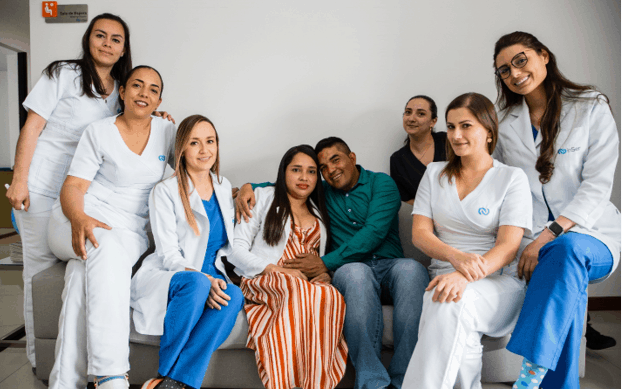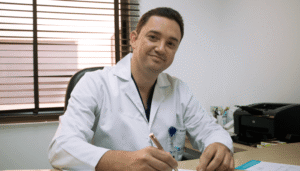September is the month in which global awareness is raised about a disorder that affects 1 in 10 women of reproductive age: Polycystic Ovary Syndrome (PCOS), a disease related to ovulation in a woman and that can have a direct impact on her fertility.
In the following article, we tell you the 10 things you should know about Polycystic Ovary Syndrome and its relationship with fertility and other conditions of a woman’s quality of life:
Polycystic Ovary Syndrome or PCOS is the most common cause of anovulatory disorders in women of reproductive age. One of the clearest symptoms that a woman may have the syndrome is when she has menstrual cycles longer than 35 days or less than 25.
The cause of Polycystic Ovary Syndrome is not known, however, it is believed that this syndrome is related to insulin resistance, and therefore should be treated as an issue that involves the endocrine part of the woman.
The most common symptoms of Polycystic Ovary Syndrome are: acne, overweight, oily skin and scalp and increased body hair. Although the severity of symptoms varies from woman to woman, anovulatory disorder may persist and therefore you may have difficulty achieving pregnancy.
Women with PCOS are more likely to develop diabetes mellitus and other cardiovascular diseases that can affect a woman’s quality of life throughout her life.
One of the alternatives to treat polycystic ovaries is to lose weight through good nutrition and physical activity, because in this way menstrual cycles are regulated and thus you can have greater chances of getting pregnant spontaneously.
There are three ways to detect Polycystic Ovary Syndrome: by detecting irregular menstrual cycles, diagnosing elevated androgen levels (which can be detected with a blood test and by evidence of the symptoms mentioned above), and finding a polycystic-looking ovary (which can be seen by transvaginal ultrasound).
The woman who is trying to get pregnant and who suffers from Polycystic Ovary Syndrome can use oral medications to induce ovulation such as Clomiphene Citrate or injectable medications such as follicle stimulating hormone (FSH). Occasionally, medications that increase insulin sensitivity, such as metformin, are required.
If none of the above alternatives work, laparoscopic surgery can be performed to treat this syndrome and thus help the woman ovulate naturally again. Also, a perforation or perforations in the ovary can be performed by means of laser to help spontaneous ovulation in women with this syndrome.
Approximately 80% of women manage to ovulate and get pregnant after undergoing any of the treatments mentioned above. If the search for pregnancy does not materialize, it is possible that the doctor will examine other factors that may be interfering with achieving pregnancy such as obstruction of the fallopian tubes, problems in the couple’s semen, among other causes.
Lifestyle changes and proper medical treatment can substantially help a woman with polycystic ovaries in her desires to have a baby. Consult an Inser specialist in Bogotá, Medellín, Rionegro, Pereira or Cartagena to evaluate your case and thus achieve the dream of being a mother.

